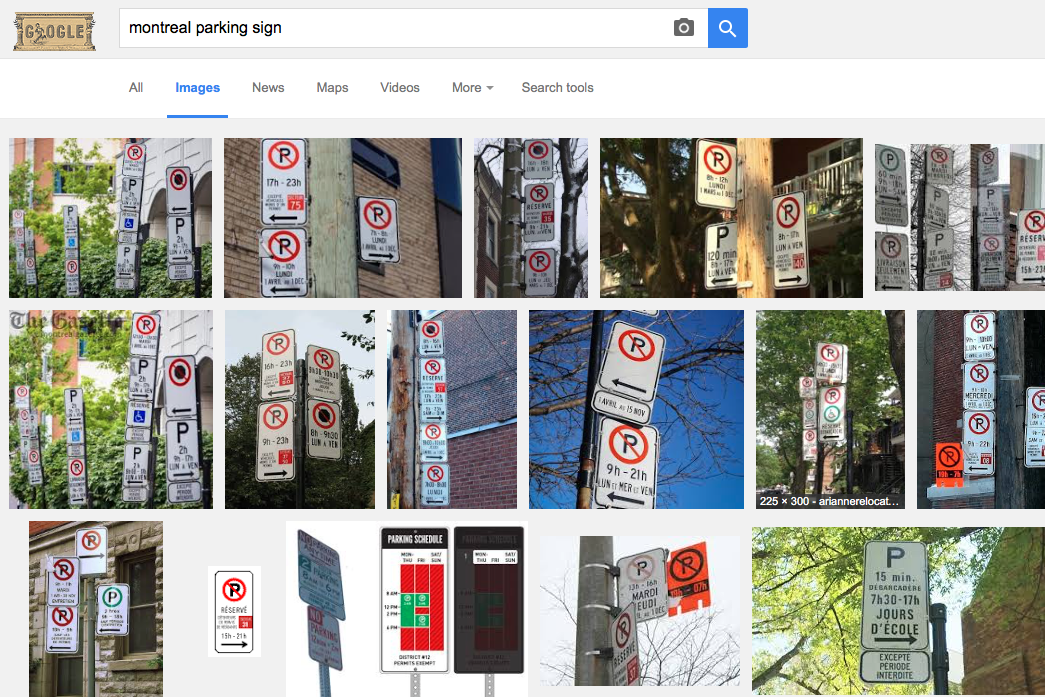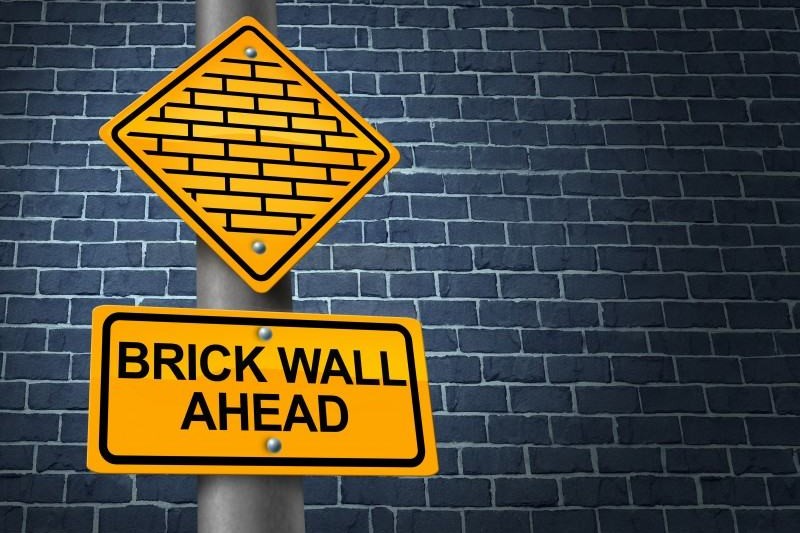C.02.006 Qualification
I like puzzles. Like this one : Why should a supervisor need to be a university graduate to supervise in the manufacturing area but NOT in the packaging area? The Canadian regs are pretty explicit about this. Is a danger to contaminate the product that different from one area to another? Or, more importantly, does the patient affected by a contaminated product see a difference between a product contaminated by a metal particle from the tablet press and one whose integrity was affected by a deficient storage system? What about the young lady taking a contraceptive sample, handed down by her physician after staying in the trunk of a sales rep’s car 3 days at 42? or the pre-school kid finding a nitro granule in his daily vitamin, will they ask enquire about the education level of the person responsible to supervise the operations?
In every case, the health of a patient is at stake.
In every case, the level of education is irrelevant.
In every case, we must manage the human being responsible for the manufacturing, packaging, storing and distributing operations of our pharmaceuticals products.
Is a high-education diploma a guarantee against defects?
No.
Education
Why should we worship a graduate fresh from McGill or Stanford rather than a supervisor who worked 30 years in a plant, who knows the ins and outs of the processes, who understand how to deals with fellow workers AND with a flawless record of ethical conduct?
Mind you, I have nothing against diplomas! I would be in a weird position to argue against the benefit of university education, being myself a M.Sc.. Simply put, I wonder about the value we sometimes place on diplomas. More specifically on the value the authors of the C.02.006 put on diplomas. If we believe the good manufacturing practices regulations, a diploma guarantees performance. And quality. Or even worse, the absence of a diplomated (?) supervisor in a manufacturing area is a non-compliance!
Let us think about this.
The Canadian good manufacturing practices regulations stipulate that “individuals in charge of the manufacturing and the quality control department hold a university diploma, or equivalent, in a science related to the work being carried out”.
Hmmmm… In our now-global village we must think hard and fast about equivalencies. I was talking to a university professor of the pharmacy department a few months back. I was told that a pharmacist trained in some prominent European country’s university was really, and he meant REALLY not up to par with OUR standards. Clearly the criteria to receive a diploma are not the same from country to country. At the same time, we must really, and I mean REALLY, ponder what it means. After all, I do not remember reading about a higher that usual number of complaints of death by prescription in Europe with respect to Canada! Their pharmacists must do a decent job too…
We know for a fact that a technical Master degree in France is not the same as a M.Sc. in North America. We know for a fact that a college degree in Canada and the US is NOT the same as a “college” degree or D.E.C. in Québec. A technical D.E.C. in Québec might be the “equivalent” of or even better than a bachelor degree in science as far as the technical expertise required to supervise a compression operation.
Some questions remain unanswered. But at least , those questions were stated. We cannot ignore them anymore.
So much for education. What about experience?
Experience
The US good manufacturing practices regulations, article 211.25 a) mentions that an employee must have training, education AND experience to perform adequately and in compliance the tasks assigned to him/her. Paragraph b) adds that a supervisor responsible for manufacturing, packaging or distribution operations must also ensure that the products are compliant to the ISSPQ (I much prefer QPISS as an acronym… easier to remember! Probably due to my French and irreverent nature!) : integrity, safety, strength, purity and quality. (As if only the supervisor is responsible for that? Hmmmm).
Training, education and experience… or any combination thereof.
Any combination thereof!?
I LOVE THAT!
I must admit very humbly that reading the Canadian good manufacturing regulations and comparing it to the US or European ones that I am proud of our regs. The facts that the Canadian GMP have a guiding principle, a few (we have only 30) short rules (“règlements”) accompanied by detailed interpretations makes the application of the good manufacturing practices more natural. In general, the Canadian regs seem to me like the way to go as far as compliance is concerned.
BUT, I admit freely that this part of the US regulations tops it all.
Any combination thereof.
WOW!
No more do we worship the experience of the old-timer with 45 years of experience but who refused to attend any technical course on microbiology.
No more do we worship the Ph.D. with all of his theoretical knowledge and absolutely no clue about human nature.
Any combination thereof. I just love it.
It might be more difficult to justify this factually to an investigator but if the criteria are well established… like a breeze.
Over are the dogmas based on titles!
Competence can be democratized based on what we decide, on what is important.
Is a chemical engineer able to supervise a team on the night shift? Packaging only or distribution too?
I do not know of any university program which include how to perfectly set up a tablet press… or an HPLC.
I do not think there is yet a master program on temperature mapping of a 20 000 square feet warehouse 60 feet high with garage doors opening and closing every 12 minutes, thereby effectively sending the “mapping” plan through the roof…
No biochemist with a B.Sc., M.Sc. or Ph.D. becoming responsible overnight for the ointments department has any experience with a team of workers who decide altogether that they will take turn with sick days days on the following week…
REAL LIFE is not taught… it is experienced.
What is an adequate experience? Japanese companies apparently prefer managers with a history of failures than a superstar who never failed. The former survived. The latter… who knows? Another paradigm to break.
Once the selection interview is over, what are the criteria used to hire a supervisor? Do you use a competence profiling system? Do we ever think carefully about the real competence required to accomplish all the tasks? More and more it is the case in a lot of company. Thankfully.
OR did you rather hire a candidate with a very impressive C.V. without calling a few former employers… and consulting the future colleagues and employes
Calling future colleagues? Consulting employees?
Yes sir!
Why not? I am always surprised when some of my divorced friends and neighbors introduce the new “dad” or “mom” to their kids. THIS IS NOT A TEST! Here kids, this is your new “mom”, hope you like her. You should see and feel the reaction of the kids. Some become school fighters, some stop talking… well you know the score. Why don’t they introduce the kids before they decide to hook up with a new partner? The kids are a big part of the equation after all… Well, who I am to judge this? It just seems incongruous although I am sure it is not done with a bad intent. Whose needs should be fulfilled first? The mother/father desire for a companion or the family’s need for prolonged balance and love?
Same thing with employees and the new supervisors. Up to a point. A pre-interview with the team might let you see a lot of potential problems. The C.V. will just complete the picture rather that paint it all. Whose needs will be fulfilled? The HR’s desire to find a supervisor and close the case or the organization’s need to create effective and long-lasting team’s performance? Experience, the real thing, can be assessed on the floor. Not in an office. The whole team will thank you for this.
Go with the real thing. Or any combination thereof.
Education : ?
Experience : ?
Now training.
Training…
… “Technical, academic, and other training as the director considers satisfactory in the interest of the health of the consumer or purchaser”
Once more, take this from the opposite side. What if the candidate were to elaborate his own development plan right after hiring? In collaboration with his superior of course. Based on his competency profile, a new candidate could easily evaluate where to put his effort. We might even do the same thing for the whole team!
Where is written that an employee or a supervisor should have ALL the required competencies to start a job? A lot of times, development plan are established on competency models as if everyone COULD develop those competencies and become a champion at them, all of them. Performance evaluations are done to identify the improvement areas of the individuals and annual development plans are established to improve specifically those areas. Let’s say it bluntly : To correct those weaknesses. In any case, the look on the face of the evaluator, usually your boss, says it all. Recent studies demonstrate that if you do not have a talent for presentation, taking courses and coaching might help you do a decent job, but forget about the olympic medal… Even tough, year after year, you will be told to develop this competency… Know the feeling ?
But as a team the picture might be different. What about training and development plan for a TEAM? Some WILL already be a champion for any competency you might think of. Some people might not require to take all the required courses to perform. As a team, the team development plan might be easier to set up and execute. In some case, you might have to move people around a bit and make sure the right people are at the right place, at the right moment. Thereby reducing the training efforts…
Oh this might seem like a wild notion… but who knows? We might be able to pull it off nicely.
Just think for a moment about the competency of the team, employees AND supervisors :
Who is the best to handle schedule complaints?
Who could help during the next collective agreement negotiation?
Who could write a disciplinary letter with enough tact, diplomacy AND assertiveness?
Who has more credibility when discussing technical mater with the team?
Who has the talent to present the last quarter disastrous results?
Who is the best trainer?
Would it be possible to assemble a multi-disciplinary team composed of vastly different and complimentary individuals and talents? Notice the voluntary omission of words such as employees and managers…
Brief conclusion
New tools now allows us infinite possibilities as far as managing humans. Never before the future was that exciting. Forget about the crisis for the moment. Adversity is the mother of invention and innovation.
Breaking paradigms was never painless. Napoleon Hill wrote more than 70 years ago that he foresaw organization working as hierarchy-less unit, replacing the rigid autocratic method with shared responsibilities.
Hey, we are NOT there yet.
But we are working at it.
The future looks incredible! With all the new technological tools available and the coming of the Y (WHY) generations, the mixing of experiences, training and education… or any combination thereof!
Have fun, learn well and stay compliant!
Keep on having fun educating your colleagues!
“Education is not the answer to the question. Education is the means to the answer to all questions.” William Allin?Marcel Proust
“Experience is simply the name we give our mistakes.” Oscar Wilde
“I never teach my pupils; I only attempt to provide the conditions in which they can learn.” Albert Einstein
“The mediocre teacher tells. The good teacher explains. The superior teacher demonstrates. The great teacher inspires.” William Arthur Ward”
Par François Lavallée, M. Sc.
© Copyrighted material Aliter Concept 2015. Please do not print or copy without permission from the author.
BUT DO SHARE IT using the social network buttons !!




